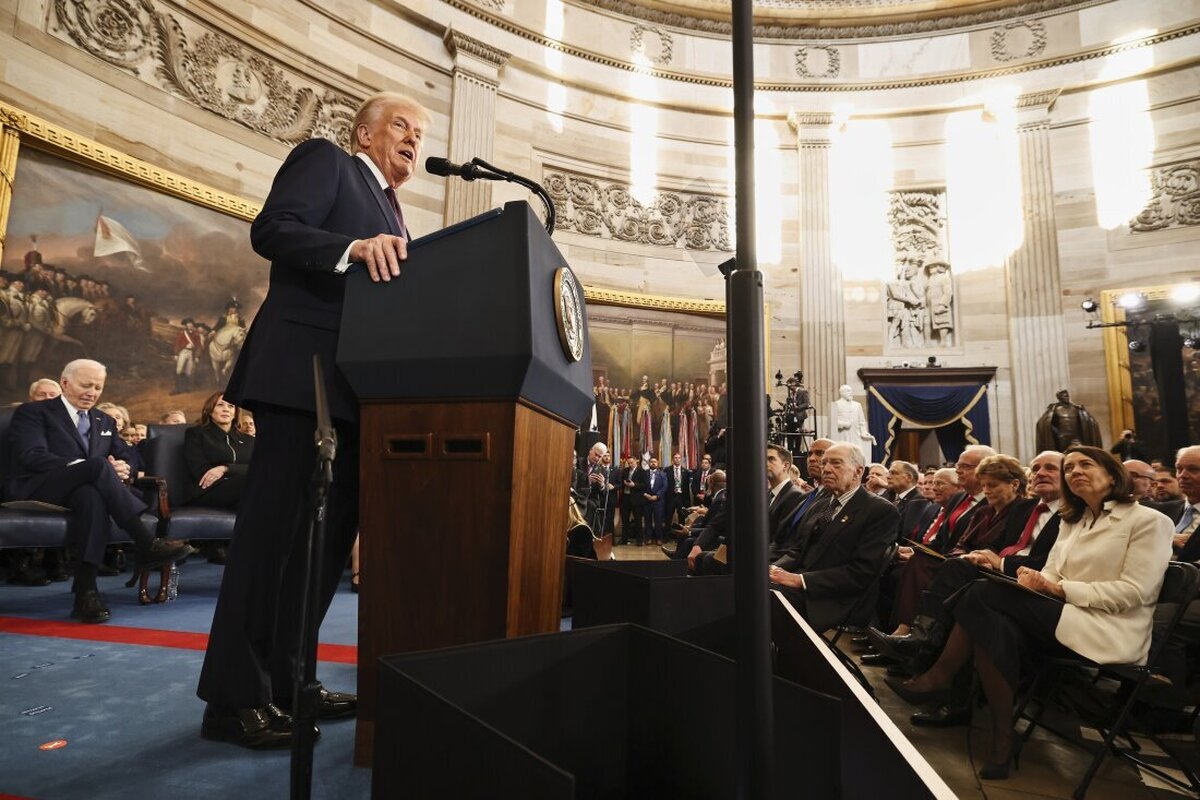Messages for Iran in Trumps Inauguration Speech
Trumps speech at the inauguration like any other open text had lines and between the lines.

Trump's speech at the inauguration, like any other open text, had "lines" and "between the lines." Sometimes, the unspoken elements of the text or the subtext hold more significance than the spoken words and the lines themselves. A qualitative content analysis of Trump's speech on inauguration day indicates that the subtext is more important for the Islamic Republic of Iran and carries more serious messages. In his speech, Trump primarily focused on domestic issues and, with a high level of confidence stemming from his personality and the decisive vote he received in the election, unveiled his specific decisions in the social, economic, and political spheres. He paid little attention to foreign policy and global issues, and regarding the Middle East, he only expressed satisfaction with the release of Israeli hostages. Just a week before his inauguration, he had threatened that if an agreement for the release of hostages between Hamas and Israel was not reached by January 20 (the day of the inauguration), there would be "hellish consequences" awaiting the Middle East; on inauguration day, he triumphantly referred to the release of the hostages. This was the only point he made regarding the Middle East. Nevertheless, some of Trump's statements can provide insights into his potential approaches and decisions regarding Iran; these statements include:
- "My first priority in all matters is America."
- "A few months ago, a bullet from a killer wounded my ear. Since then, I have felt, and now I am more convinced, that my life was saved for a reason. God saved me to make America great again."
- "America has the opportunity to take advantage of the current conditions in the world, but above all, it must address internal challenges. At this moment, many governments distrust us."
- "The current government (the Biden administration) cannot even handle internal crises and is entering into widespread external crises."
- "We had a government that provided unlimited support to foreign countries but did not protect America."
- "The inflation crisis in America is due to rising energy prices. Today, I will declare an energy emergency and will drill." (referring to extensive oil extraction)
- "We have the largest oil and gas reserves in the world. We will reduce energy prices and export energy all over the world."
- "We will win in all battles, and our strength will prevent all wars, creating a spirit of unity in a world that is angry, violent, and unpredictable."
Based on this, Trump's policies towards the region and Iran can be analyzed and predicted as follows:
1) Trump will believe in divine support for himself and his decisions.
2) He will not go to war in the short term.
3) Domestic issues in the United States will be a priority for Trump.
4) The U.S. will reduce financial aid to its allies in the region.
5) His strategy in the region will involve "shifting responsibility to allies" under the title of "distant balancing."
6) Trump seeks to strengthen the united front with the U.S. through the continued normalization of Arab-Israeli relations.
7) The normalization of relations between Saudi Arabia and Israel is one of the priorities of Trump's Middle Eastern policy.
8) Trump views diplomacy as a battlefield.
9) His strategy towards Iran will involve a significant increase in sanctions in the short term to achieve an agreement.
10) Regarding Iran's nuclear issue, diplomacy will be a priority for Trump, but he will pursue "coercive diplomacy."
Seyed Mohammad Hosseini, Senior Expert at the Center for Political and International Studies
(The opinions expressed are those of the authors and do not purport to reflect the opinions or views of the IPIS)